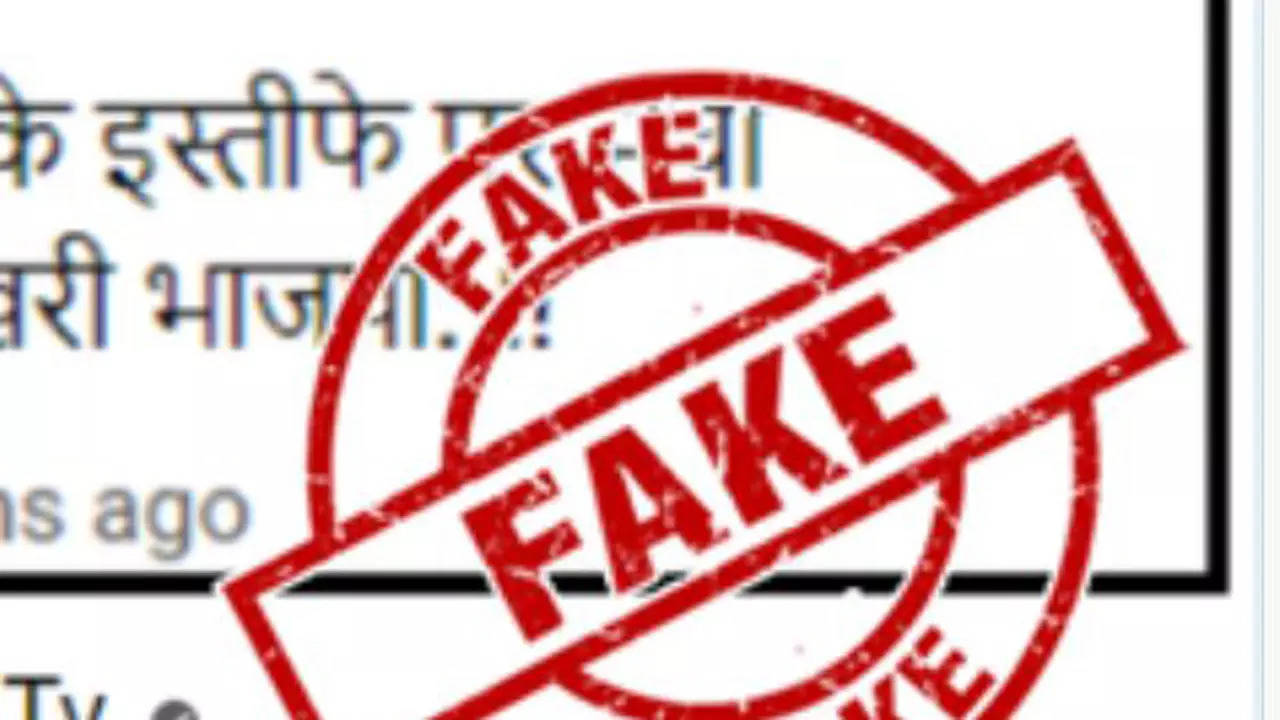
[ad_1]
NEW DELHI: The Editors Guild of India on Wednesday expressed deep concern over the draft amendment to the Information Technology Rules framed by the ministry of electronics and IT and said the government should “expunge” portions where the rules ask social media companies to take down news articles as and when deemed “fake” by the Press Information Bureau (PIB).
“The Guild urges the ministry to expunge this new amendment, and to initiate meaningful consultations with press bodies, media organisations and other stakeholders, on the regulatory framework for digital media, so as to not undermine press freedom,” a statement issued by the Editors Guild of India said.
“At the outset, determination of fake news cannot be in the sole hands of the government and will result in the censorship of the press,” the Guild said here, voicing “deep concern” over the draft amendment to the IT Rules.
It added that multiple laws exist to deal with content that is found to be factually incorrect.
“This new procedure basically serves to make it easier to muzzle the free press, and will give sweeping powers to the PIB, or any other agency authorised by the central government for fact checking, to force online intermediaries to take down content that the government may find problematic,” the Guild said.
On Tuesday, the ministry released a modification to the draft Information Technology (Intermediary Guidelines and Digital Media Ethics Code) Rules, 2021 that it had previously released for public consultation.
The addition to the “due diligence section” for social media intermediaries says intermediaries shall not be allowed to publish information that “deceives or misleads the addressee about the origin of the message or knowingly and intentionally communicates any misinformation”, and which has been “identified as fake or false by the fact check unit at the PIB of the ministry of information and broadcasting or other agency authorised by the Central government for fact-checking”.
“The words in respect of any business of the central government seem to give the government a carte blanche to determine what is fake or not with respect to its own work. This will stifle legitimate criticism of the government and will have an adverse impact on the ability of the press to hold governments to account, which is a vital role it plays in a democracy,” the Guild said.
The Guild said in its statement that it had raised its deep concerns over the IT Rules when they were first introduced in March 2021 and said they empower the Union government to “block, delete, or modify published news anywhere in the country without any judicial oversight”. It also reiterated that various provisions of the rules have the potential to place unreasonable restrictions on digital news media, and consequently media at large.
This new procedure basically serves to make it easier to muzzle the free press… will stifle legitimate criticism of the government and will have an adverse impact on the ability of the press to hold governments to account.
“The Guild urges the ministry to expunge this new amendment, and to initiate meaningful consultations with press bodies, media organisations and other stakeholders, on the regulatory framework for digital media, so as to not undermine press freedom,” a statement issued by the Editors Guild of India said.
“At the outset, determination of fake news cannot be in the sole hands of the government and will result in the censorship of the press,” the Guild said here, voicing “deep concern” over the draft amendment to the IT Rules.
It added that multiple laws exist to deal with content that is found to be factually incorrect.
“This new procedure basically serves to make it easier to muzzle the free press, and will give sweeping powers to the PIB, or any other agency authorised by the central government for fact checking, to force online intermediaries to take down content that the government may find problematic,” the Guild said.
On Tuesday, the ministry released a modification to the draft Information Technology (Intermediary Guidelines and Digital Media Ethics Code) Rules, 2021 that it had previously released for public consultation.
The addition to the “due diligence section” for social media intermediaries says intermediaries shall not be allowed to publish information that “deceives or misleads the addressee about the origin of the message or knowingly and intentionally communicates any misinformation”, and which has been “identified as fake or false by the fact check unit at the PIB of the ministry of information and broadcasting or other agency authorised by the Central government for fact-checking”.
“The words in respect of any business of the central government seem to give the government a carte blanche to determine what is fake or not with respect to its own work. This will stifle legitimate criticism of the government and will have an adverse impact on the ability of the press to hold governments to account, which is a vital role it plays in a democracy,” the Guild said.
The Guild said in its statement that it had raised its deep concerns over the IT Rules when they were first introduced in March 2021 and said they empower the Union government to “block, delete, or modify published news anywhere in the country without any judicial oversight”. It also reiterated that various provisions of the rules have the potential to place unreasonable restrictions on digital news media, and consequently media at large.
This new procedure basically serves to make it easier to muzzle the free press… will stifle legitimate criticism of the government and will have an adverse impact on the ability of the press to hold governments to account.
[ad_2]
Source link
